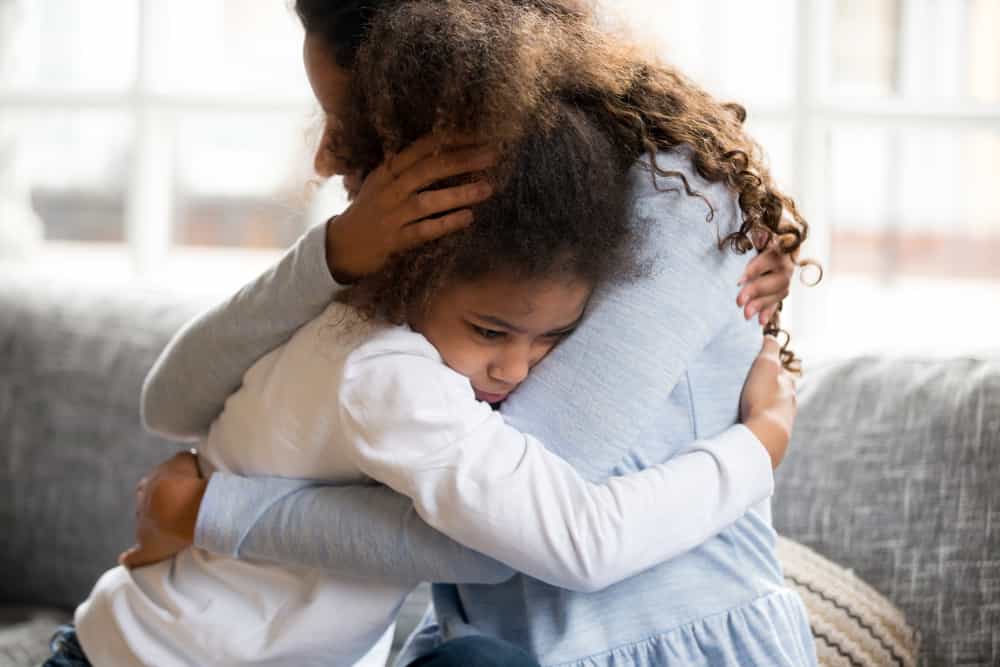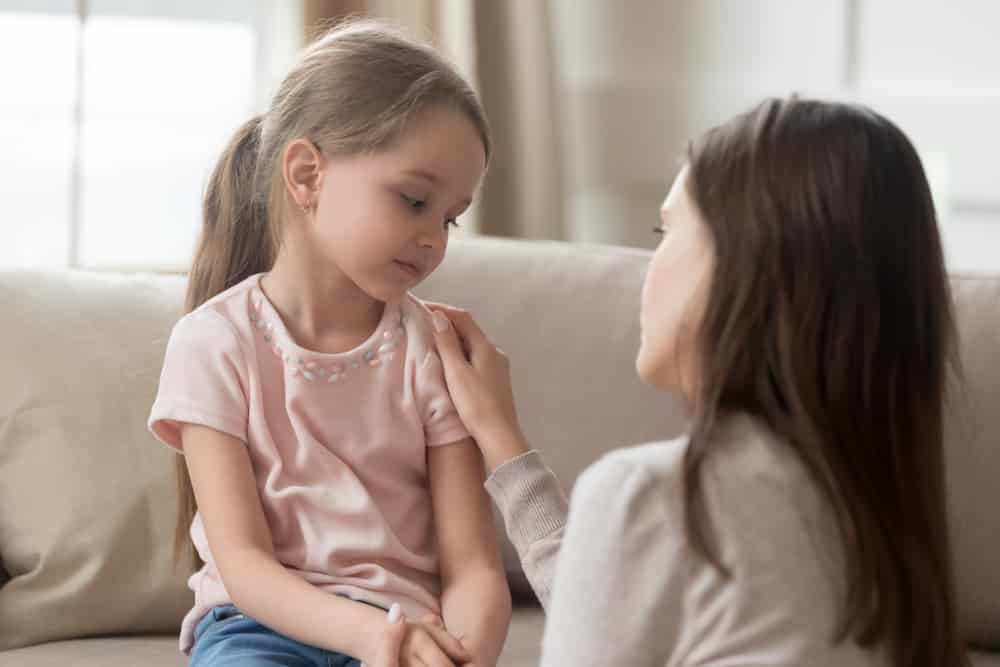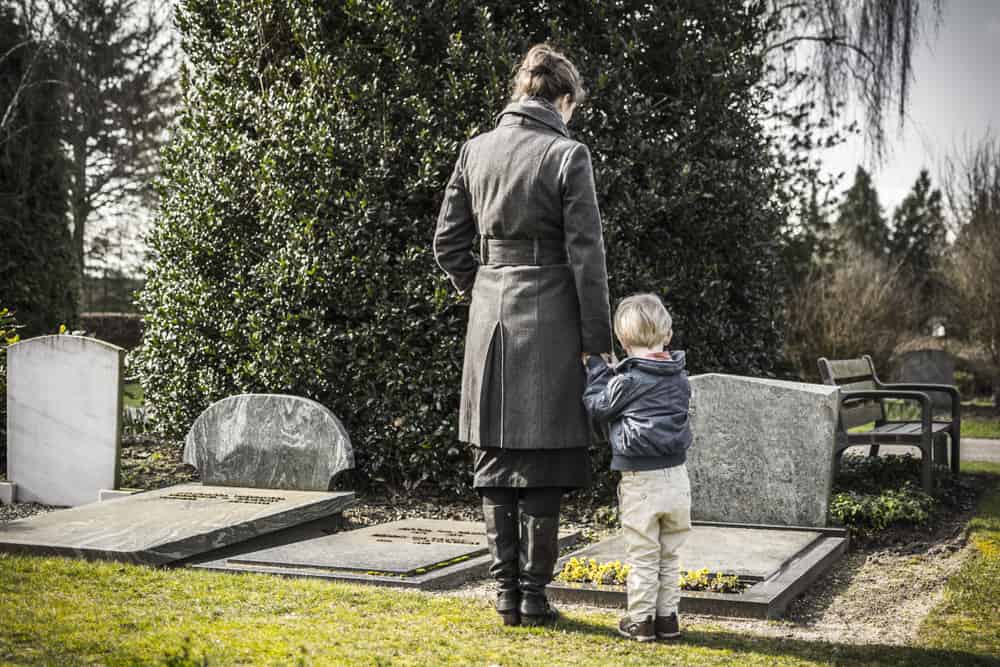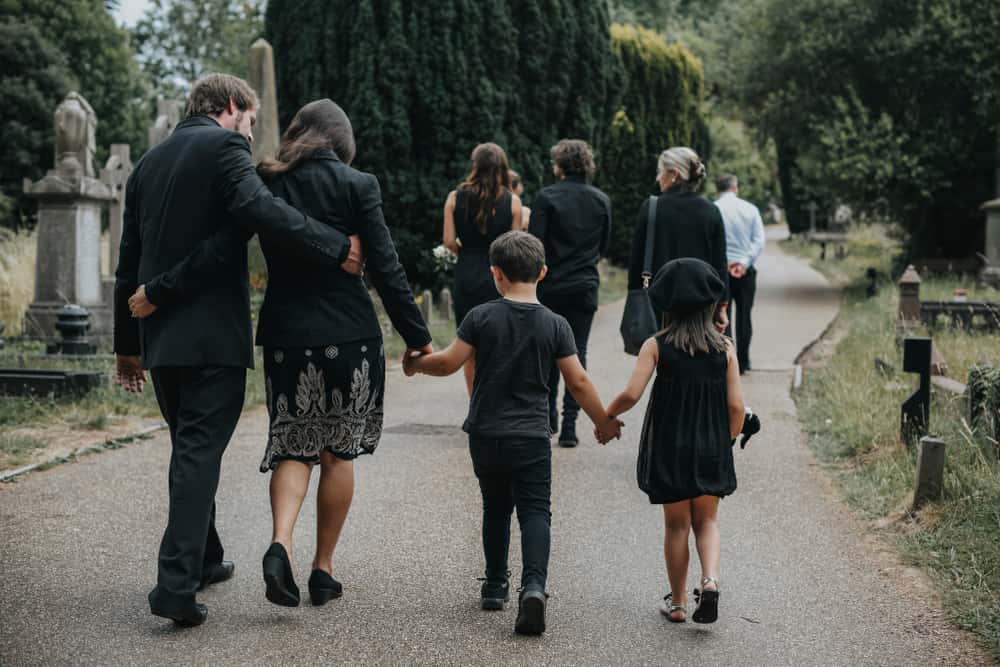Talking about death with a child is something no adult wants to do, but children need a guided conversation about death to help them process such an intricate part of the human experience. Death is a part of life, and adults can process and understand this fact, but children need guidance and support when death touches their lives.
Depending on the age of the child, explaining death will look different. And adults need to consider the age and mental capacity of the child. Losing a loved one is difficult, and explaining that to a child may seem impossible, but experts agree that a few key factors in explaining death to a child can help a child process grief and loss in the best way for them.
When the death of a loved one affects children, it will look different depending on their age. Infants and toddlers won't be able to understand, but they will understand the change in their routine that is caused by death. School-age children may connect death to imaginary play with ghosts and scary imagery. Older school children will be able to understand that it is forever but may struggle with faith and religious beliefs about the afterlife.
Parents and caregivers can get through these challenging conversations by following a few guidelines to help them explain death to a child in a way that ensures the child feels safe and heard.
When to Talk About Death
It is common for children to be exposed to death at some point in their childhood, usually through the death of a grandparent or pet. The way they learn about death and grow to understand it is shaped in these early years, so parents and caregivers need to have strategies for navigating how to explain death to a child. It is a necessary conversation, and with some planning and patience, parents and caregivers can find the right words to help them explain this often scary part of life.
Death is a natural part of the life cycle, and introducing the concept of death before the reality of losing someone is one way to introduce the idea to children. For example, talking about the life cycle of plants or the seasons helps slowly introduce the concept. There are many children's books available that can help introduce the life cycle in age-appropriate ways.
Use Honest Language

©fizkes/Shutterstock.com
Talking about death is difficult, but using euphemisms or metaphors can cause confusion for children. Children will have a difficult time understanding phrases like “crossed over,” “passed away,” or “went to sleep forever.” Instead, using clear and direct language is important to avoid ambiguous ideas. Stick with age-appropriate language but be clear.
Pediatric psychologist Kate Eshleman, PsyD, explains the importance of being honest with children and always telling them the truth about the situation. This doesn't mean sharing inappropriate or graphic details; just being straightforward and honest.
Let Them Ask Questions
Children are going to have a lot of questions, and providing a safe space for them to ask their questions allows them to come to terms with the situation in their own way. It is essential to listen with patience and answer with empathy. Parents and caregivers may be surprised at the questions that kids come up with concerning death. Children may have irrational fears, phobias, or misunderstandings that will cloud their understanding of what death means and may lead to anxiety. Parents and caregivers need to serve as a safe voice of reason.
Help Them Express Their Feelings

©fizkes/Shutterstock.com
Parents and caregivers can explain to children the big feelings they may have using labels to describe them. Children need to understand that it is okay to feel sad, angry, confused, and every emotion they are feeling. For younger children, it may be helpful to have a visual aid like a book or chart when describing feelings. Parents and caregivers need to allow them a chance to feel and express those feelings. This conversation is an ongoing conversation. Many children may not be ready to open up about their feelings right away, and they may need time to feel comfortable sharing their private feelings. Offer them plenty of opportunities to share and express themselves throughout the grieving process and in the future.
Explain What to Expect at the Service
There are many family and religious rituals that families follow in the aftermath of a loss. It is crucial to explain to children what is happening and what they can expect in the following days. For children understanding what to expect is a way to help them make sense of what is happening. Helping them feel prepared for the changes and how they will look allows them to feel part of the rituals and not be blindsided by them.
Children should attend the service if their parents feel it is appropriate. Young children may be scared, especially if it's an open casket. But older children may feel comforted by the opportunity to say a final goodbye.
Let Them Have a Role
Some children will enjoy the responsibility of having a role in the rituals. Let the child choose photos to be displayed, pick a song, or read a poem at the service if they want to be included. But do not force them to participate. According to the American Academy of Child and Adolescent Psychiatry, children need to grieve in their own individual way and should never be forced to attend a funeral.
Find a Special Way to Remember the Person

©Twin Design/Shutterstock.com
Children may want to create something to remember the person. It could be an art project, a collage, a scrapbook, or planting a tree in remembrance. Help them find something meaningful to help them feel connected to the person who passed. Allow them the opportunity to grieve in their own way while supporting the process. Giving them plenty of time to heal in their own way is vital. Parents and caregivers should always reassure and comfort children. Grieving is a process, and it is different for everyone. Some children may cry, while others may seem to disassociate. In some situations seeking a grief counselor may be an appropriate choice to help them process their emotions and life changes.
Common Mistakes When Explaining Death to Children
Allowing children the space and comfort to grieve in their own way will let them know that grief affects everyone differently. But there are mistakes that adults make when talking to children about death that can actually make it more difficult for them to understand.
Filling the silence with chatter. Let children talk and ask questions and make connections. Many adults talk too much when they are nervous and avoid uncomfortable silences. Resist the urge to keep talking and allow the child to talk, and be supportive even in uncountable silence.
When grieving adults want to share their feelings and thoughts with their children, that is an important part of the human bonding experience. However, parents and caregivers should not overburden the children with their own grieving process. Adults and caregivers need to be a safe harbor for children to process their sadness and uncertainty. When an adult overshares and is overly emotional, children can feel the burden of making everything better. And may take the caregiver role to help the adult feel better. It is best for an adult to process their grief with other adults to avoid overwhelming a child.
Preparation is Key

©Valery Zotev/Shutterstock.com
When death arrives through long-term illness, it is important to explain to children that not everyone who gets sick dies. Parents and caregivers can explain the illness but do not need to go into medical details as that can confuse children even more. Telling a child that grandpa went to the hospital and is never coming home only scares them and creates a phobia of hospitals and that any time anyone goes to a hospital, they die. Kids' brains and thought processes are complex, but they do not need unnecessary details about illness or death.
When the death is sudden or unexpected, parents and caregivers need to address what details are appropriate and not for the children. In the case of a car accident, the child may fear riding in cars because cars equal death. So choosing the details and how to explain them is key.
There is no good time to have a difficult conversation, and sooner or later, death will touch everybody, including children. Having a plan on how to navigate and explain death through spiritual or religious practices can help ease the emotional toll this stage of life presents.
The image featured at the top of this post is ©Rawpixel.com/Shutterstock.com.
